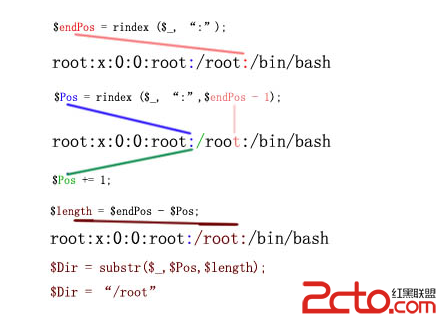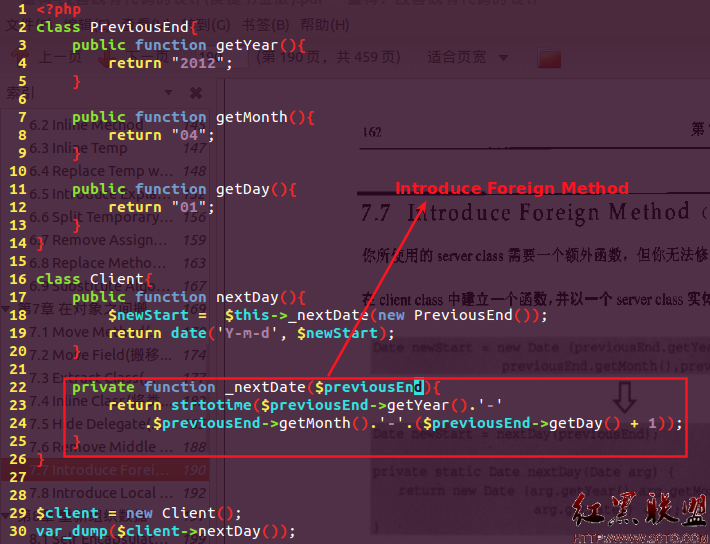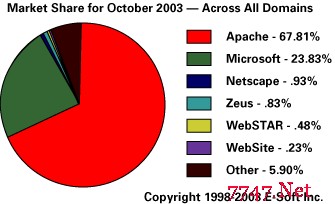PHP在大型网站开发中的一些问题
php以其易用性得到迅速的推广,但易用并不是说就能用好它,实际上许多程序员用它很容易的立一个个web应用系统,但又有多少人仔细的考虑过他们的代码,是否容易维护、是否足够健壮、否效率足够高、是否足够安全,当php用于建立大型网站时这些就成为很关键的因素。下面我们从较轻微的问题开始讨论,直至一些致命的错误。共分三部分。
第一部分、较轻微的错误
一、printf(),
该函数主要用来格式化显示数据。当你要改变某个数据的显示格式时才使用。
例如以不同的精度来显示pi(3.1415926)的值。
| 以下为引用的内容: <?php /* * the three faces of π */ printf ("pi is: %.2f <br> ", m_pi); printf ("pi is also: %.3f <br> ", m_pi); printf ("pi is also: %.4f <br> ", m_pi); ?> |
但许多程序员仅仅为显示一些变量值和函数返回值使用该函数。因为printf()在显示数据前要先格式化该数据以速度较慢,因此,仅为了显示数据时应用print和echo,以提高速度。 字串6
二、语意检查
php是一种弱类型语言,也就是说在使用一个变量前不用定义,这样给编程带来了很大的方便和灵活,但你自己必须知道该变量到底应该是哪种类型,因为该变量在运行时仍实际对应着某一种类型(各种类型之间可以自由互相转换),没有类型的变量是不存在的。有可能php并不能检查出你的语意错误,但由于变量类型的变化,会导致一些潜在的问题的发生。另外一个值得注意的问题是变量的范围,它也可能会导致一些潜在的问题的发生。
在php中有以下几种基本变量:
boolean, resource, integer, double, string, array and object。
三、临时变量的使用
临时变量的滥用会导致程序运行效率的降低。何时使用临时变量可基于以下两点考虑:
1、该变量是否至少使用两次。
2、该变量的使用是否会显著提高程序的可读性。
如果一条也不满足,则省略该变量的使用。例如:
| 以下为引用的内容: <?php $tmp = date ("f d, h:i a"); /* ie january 3, 2:30 pm */ print $tmp; ?> |
就应该改成:
| 以下为引用的内容: <?php print date ("f d, h:i a"); ?> |
又如:
| 以下为引用的内容: <?php // string reverse_characters(string str) // reverse all of the characters in a string. function reverse_characters ($str) { return implode ("", array_reverse (preg_split("//", $str))); } ?> |
的可读性不强,可改成:
| 以下为引用的内容: <?php // string reverse_characters(string str) // reverse all of the characters in a string. function reverse_characters ($str) { $characters = preg_split ("//", $str); $characters = array_reverse ($characters); return implode ("", $characters); } ?> |
四、客户端和服务器端代码的分离
客户端和服务器端代码的在php程序中实际上就是html代码和php语言代码,很多人把html和php语句混合在一个文件里,使得这文件很大,这种风格对程序的维护和再开发很不利,不适合大型站点的开发。一般有两种方法把html和php语句分开:
1、编写专用api,例如:
index.php ? the client side
| 以下为引用的内容: <?php include_once ("site.lib"); ?> <html> <head> <title> <?php print_header (); ?> </title> </head> <body> <h1> <?php print_header (); ?> </h1> <table border="0" cellpadding="0" cellspacing="0"> <tr> <td width="25%"> <?php print_links (); ?> </td> <td> <?php print_body (); ?> </td> </tr> </table> </body> </html> |
site.lib ? the server side code
| 以下为引用的内容: <?php $dbh = mysql_connect ("localhost", "sh", "pass") or die (sprintf ("cannot connect to mysql [%s]: %s", mysql_errno (), mysql_error ())); @mysql_select_db ("mainsite") or die (sprintf ("cannot select database [%s]: %s", mysql_errno (), mysql_error ())); $sth = @mysql_query ("select * from site", $dbh) or die (sprintf ("cannot execute query [%s]: %s", mysql_errno (), mysql_error ())); $site_info = mysql_fetch_object ($sth); function print_header () { global $site_info; print $site_info->header; 字串4 } function print_body () { global $site_info; print nl2br ($site_info->body); } function print_links () { global $site_info; $links = explode (" ", $site_info->links); $names = explode (" ", $site_info->link_names); for ($i = 0; $i < count ($links); 补充:Web开发 , php ,
访问www.zzzyk.com 试试 CopyRight © 2022 站长资源库 编程知识问答 zzzyk.com All Rights Reserved
部分文章来自网络, |





